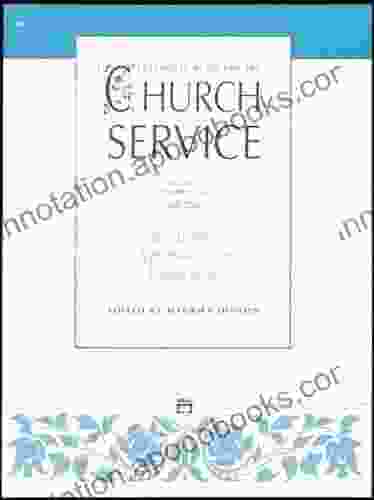States and Women's Rights: A Comprehensive Guide to the Legal Landscape


Women's rights are a fundamental aspect of any just and equitable society. Women have fought for centuries to secure their rights, and the United States has been at the forefront of this movement. However, the legal landscape for women's rights is complex and ever-changing, making it difficult for individuals to understand their rights and navigate the legal system.
4.7 out of 5
| Language | : | English |
| File size | : | 3870 KB |
| Text-to-Speech | : | Enabled |
| Screen Reader | : | Supported |
| Print length | : | 388 pages |
| Lending | : | Enabled |
This comprehensive guide provides an overview of the legal framework surrounding women's rights in the United States. It covers a wide range of topics, including reproductive rights, employment discrimination, and violence against women. The guide also provides practical advice on how to access legal services and enforce your rights.
Reproductive Rights
Reproductive rights are some of the most contentious issues in the United States today. The Supreme Court's 1973 decision in Roe v. Wade legalized abortion nationwide, but the ruling has been challenged ever since. In recent years, several states have passed laws that restrict access to abortion, and the future of Roe v. Wade is uncertain.
In addition to abortion, reproductive rights also include the right to contraception, sterilization, and prenatal care. These rights are protected by federal law, but they may be subject to restrictions in some states.
Employment Discrimination
Employment discrimination is another major issue facing women in the United States. Women are still underrepresented in many fields, and they often earn less than men for the same work. Federal law prohibits employment discrimination on the basis of sex, but it can be difficult to prove that discrimination has occurred.
There are several types of employment discrimination that women may face. These include:
* Hiring discrimination: Refusing to hire women for jobs that they are qualified for * Promotion discrimination: Denying women promotions that they are qualified for * Pay discrimination: Paying women less than men for the same work * Sexual harassment: Creating a hostile work environment for women through unwanted sexual advances or comments
Violence Against Women
Violence against women is a serious problem in the United States. Every year, millions of women are victims of domestic violence, sexual assault, or stalking. These crimes can have devastating consequences, including physical and emotional harm, financial hardship, and even death.
Federal law prohibits violence against women, but it can be difficult to enforce. Victims of violence may be reluctant to report the crime, and even when they do, the criminal justice system may not be able to provide them with the protection they need.
There are several types of violence against women that are covered by federal law. These include:
* Domestic violence: Physical, emotional, or sexual abuse by a current or former intimate partner * Stalking: Repeated, unwanted contact that causes fear or distress * Sexual assault: Any form of unwanted sexual contact, including rape * Human trafficking: The recruitment, transportation, or harboring of a person for the purpose of exploitation
Accessing Legal Services
If you believe that your rights have been violated, it is important to seek legal assistance. There are several legal services organizations that can provide you with free or low-cost legal aid. These organizations can help you understand your rights, file a lawsuit, or negotiate a settlement.
There are also several government agencies that can help you enforce your rights. These agencies include:
* The Equal Employment Opportunity Commission (EEOC): The EEOC enforces federal laws that prohibit employment discrimination. * The Office for Civil Rights (OCR): The OCR enforces federal laws that prohibit discrimination in education, employment, and other areas. * The Department of Justice: The Department of Justice enforces federal laws that prohibit violence against women.
Enforcing Your Rights
If you have been the victim of discrimination or violence, you may be able to file a lawsuit to enforce your rights. Lawsuits can be complex and expensive, but they can be an effective way to obtain justice.
There are several steps involved in filing a lawsuit. These steps include:
* Filing a complaint: The first step is to file a complaint with the appropriate court. The complaint should describe the facts of your case and the legal claims that you are making. * Serving the defendant: Once you have filed a complaint, you must serve the defendant with a copy of the complaint and a summons. This will notify the defendant that you are suing them. * Discovery: After the defendant has been served, the parties will begin the discovery process. Discovery is a process of exchanging information between the parties. This information can include documents, interrogatories, and depositions. * Trial: If the case cannot be resolved through settlement, it will go to trial. At trial, the parties will present their evidence and arguments to a judge or jury. * Judgment: After the trial, the judge or jury will issue a judgment. The judgment will state whether the defendant is liable for your damages and, if so, the amount of damages that you are entitled to.
Women's rights are a fundamental aspect of any just and equitable society. The United States has made significant progress in securing women's rights, but there is still much work to be done. This comprehensive guide provides an overview of the legal framework surrounding women's rights in the United States. It covers a wide range of topics, including reproductive rights, employment discrimination, and violence against women. The guide also provides practical advice on how to access legal services and enforce your rights.
If you believe that your rights have been violated, it is important to seek legal assistance. There are several legal services organizations that can provide you with free or low-cost legal aid. These organizations can help you understand your rights, file a lawsuit, or negotiate a settlement.
4.7 out of 5
| Language | : | English |
| File size | : | 3870 KB |
| Text-to-Speech | : | Enabled |
| Screen Reader | : | Supported |
| Print length | : | 388 pages |
| Lending | : | Enabled |
Do you want to contribute by writing guest posts on this blog?
Please contact us and send us a resume of previous articles that you have written.
 Book
Book Novel
Novel Page
Page Chapter
Chapter Text
Text Story
Story Genre
Genre Reader
Reader Library
Library Paperback
Paperback E-book
E-book Magazine
Magazine Newspaper
Newspaper Paragraph
Paragraph Sentence
Sentence Bookmark
Bookmark Shelf
Shelf Glossary
Glossary Bibliography
Bibliography Foreword
Foreword Preface
Preface Synopsis
Synopsis Annotation
Annotation Footnote
Footnote Manuscript
Manuscript Scroll
Scroll Codex
Codex Tome
Tome Bestseller
Bestseller Classics
Classics Library card
Library card Narrative
Narrative Biography
Biography Autobiography
Autobiography Memoir
Memoir Reference
Reference Encyclopedia
Encyclopedia Shirley Penick
Shirley Penick Christina Rossetti
Christina Rossetti Evan Graver
Evan Graver Lori Foster
Lori Foster John Warwick Montgomery
John Warwick Montgomery Christopher R Hill
Christopher R Hill Dr Carol Morgan Phd
Dr Carol Morgan Phd Christine Irving
Christine Irving Jorge Lozano
Jorge Lozano Clarence Bernard Henry
Clarence Bernard Henry Christopher Buehlman
Christopher Buehlman Christopher Black
Christopher Black Lekeia Lowery
Lekeia Lowery Christian Wolmar
Christian Wolmar Christian Welzel
Christian Welzel Christos Stilianidis
Christos Stilianidis Shasta Nelson
Shasta Nelson Mike Bogue
Mike Bogue Richard Knott
Richard Knott Ola Rotimi
Ola Rotimi
Light bulbAdvertise smarter! Our strategic ad space ensures maximum exposure. Reserve your spot today!

 Aleksandr PushkinA Journey Through Three Continents: A Memoir of Love, Loss, and Redemption
Aleksandr PushkinA Journey Through Three Continents: A Memoir of Love, Loss, and Redemption Chandler WardFollow ·12.1k
Chandler WardFollow ·12.1k Ernest J. GainesFollow ·3.2k
Ernest J. GainesFollow ·3.2k Mitch FosterFollow ·5.5k
Mitch FosterFollow ·5.5k Andy HayesFollow ·17k
Andy HayesFollow ·17k Edward BellFollow ·4.5k
Edward BellFollow ·4.5k Jack LondonFollow ·5.9k
Jack LondonFollow ·5.9k Jason HayesFollow ·14.2k
Jason HayesFollow ·14.2k Jared NelsonFollow ·3.1k
Jared NelsonFollow ·3.1k

 Kevin Turner
Kevin TurnerDive into the Enchanting World of "Crazy Like Fox": A...
Prepare yourself for a literary adventure...

 Ralph Waldo Emerson
Ralph Waldo EmersonUnlock the Elegance of Daffodil Lace: An Immersive Guide...
: A Tapestry of Delicate...

 Gerald Parker
Gerald ParkerNever Lose An Argument Again: 20 Powerful Techniques From...
Are you tired of losing...

 Xavier Bell
Xavier BellSeven Animal Insertions Filet Crochet Pattern: Embark on...
Welcome to the captivating...

 Eugene Powell
Eugene PowellMagomago in TDS Magomago 12: An Unforgettable Adventure...
Step into the Enchanting World of...

 Marvin Hayes
Marvin HayesSoft Felting Needle Holder Excellence In Reborn Artistry
Unveiling the Secrets of the...
4.7 out of 5
| Language | : | English |
| File size | : | 3870 KB |
| Text-to-Speech | : | Enabled |
| Screen Reader | : | Supported |
| Print length | : | 388 pages |
| Lending | : | Enabled |










